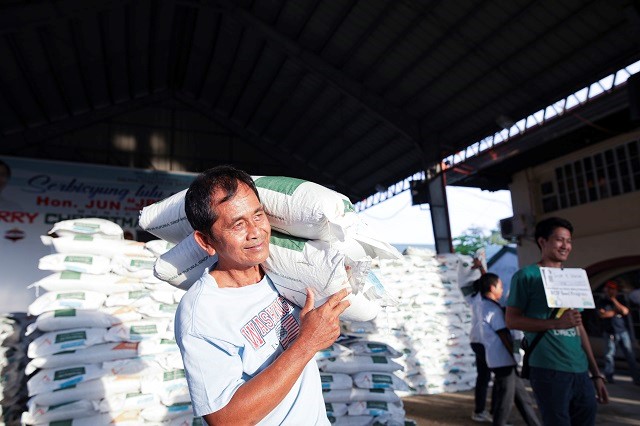
Provincial and local chief executives in 55 provinces and in almost 1,000 municipalities are spearheading the immediate turn-over of certified inbred seeds to the rice farmers with the onset of the wet season.
“In these trying times, we’ve seen the importance of farmers [in ensuring enough rice for our province]. This is why we’re extending to them all our support the best way we can, such as providing them access to high-quality inbred rice seeds from the Rice Competitiveness Enhancement Fund (RCEF)-Seed Program,” Cotabato Gov. Nancy Catamco said.
Since March, the Department of Agriculture-Philippine Rice Research Institute (DA-PhilRice) has engaged with a strengthened partnership among local government units (LGUs) to facilitate the distribution under a special protocol.
“We are closely coordinating with our partners from DA-Regional Field Offices and LGUs for the proper and safe conduct of the seed delivery and distribution activities,” Dr. Flordeliza Bordey, PhilRice deputy executive director, said.
Limitations brought about by the measures provided under the country’s new normal required PhilRice branch stations and partner LGUs to find means to deliver the seeds without drawing too much crowd.
In Isulan, Sultan Kudarat, the local government opted to do a house-to-house delivery of high-quality inbred seeds to qualified farmers registered under the Registry System for Basic Sectors in Agriculture (RSBSA). The process was similar to the delivery of relief goods in which farmers were required to show a coupon, on top of other requirements, before receiving their allotted bags of seeds.
The amount of seeds that farmers will receive depends on their farm size and common method of crop establishment in their province. A seeding rate of 40kg/ha is recommended for provinces with transplanting method. Qualified farmers can receive 1 bag (20kg each) of seed for every half hectare of cultivated area up to a maximum of 6 bags for those who have rice fields larger than 2.5ha.
Meanwhile, farmers who are from provinces that mostly practice direct seeding method will receive 80kg of seeds/hectare or 2 bags of seeds for every half hectare. These provinces include Bataan and Pampanga in Central Luzon; Palawan in MIMAROPA; Aklan, Antique, Capiz, and Iloilo in Western Visayas; North Cotabato, Sarangani, South Cotabato, and Sultan Kudarat in SOCSKSARGEN; and Maguindanao in BARMM.
As of April 30, PhilRice and its LGU partners have distributed more than 84,000 bags to about 21,000 farmers, covering roughly 24,000 ha.




